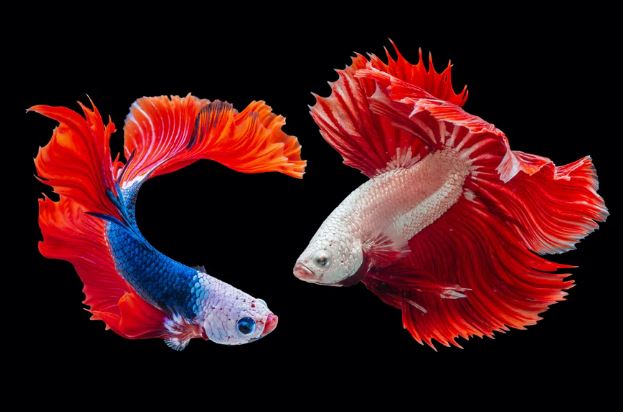Fish are very popular pets among senior citizens. The reason for this is that fish are very low maintenance but still provide companionship. Anyone that has ever owned fish for a long period of time will tell you that each fish has its own personality; this makes them fantastic pets. The presence of a fish tank in one’s room can also be very soothing, which makes them a great option for elderly people that suffer from chronic pain conditions and other health issues.
This post will offer some useful tips for fish-loving seniors, about how they can take care of their aquariums:

Overfeeding Fish
A very common mistake that’s made not just by seniors, but also by enthusiastic first-time fish owners, is to overfeed one’s fish. Overfeeding your fish can cloud your water and is also detrimental to your fish’s wellbeing. Most fish only need to be fed once a day. After eating, fish need between 16 to 24 hours to fully digest what they eat. If you are going to feed your fish twice a day, then you need to make sure that you do so very lightly.
Water Conditioning
If you want your fish to live a long life, then you need to properly condition your tank’s water. The mineral content that’s found in tap and bottled water can be very dangerous if fish are exposed to it. If you do not condition your tank’s water, then your fish won’t be able to survive in it. In order to condition it, you need to use biological agents or supplements. You can find these things at most pet stores. If you are new to fish ownership, then all you need to do is to ask a pet store employee for advice. If they do not stock what they need, they will be able to tell you what to order online.
Acclimating Fish
When you first buy fish, you need to acclimate them to their new home slowly. If fish are thrust into a new tank without acclimation, they will most likely die. The reason for this is that fish are small, sensitive creatures, that go into shock very easily. If you do not acclimate fish upon introduction to a new tank, shock is inevitable. Before introducing fish to a new tank make sure that you have tested the water and followed the previous point’s advice.
Bag Insertion
A big part of acclimating fish to a tank is to leave them inside the bag that they have been sold in and float them inside their new tank. This is so that they can adjust to the new water temperature. When you are doing this, it’s very important that you turn off your aquarium’s light (and the light in the room). After they have been floating in the bag for around 30 minutes, you can cut open the bag and let them out into the tank. Insert them gently.

pH Balance
When your fish are inside their tank, it’s very important that you regularly check their pH balance (and maintain safe levels). pH levels can tell you about your tan’s alkalinity and acidity. If your pH levels are thrown off, then it can become very dangerous for your fish. The levels that are recommended vary from species to species, so research the levels that you need to maintain your fish. The fish store that you buy your fish from should be able to provide you with this information. Failing that, you can likely find everything that you need to know on the internet.
Water Temperature
In addition to everything else that has been mentioned so far, you also need to make sure that your tank’s water temperature is right. As with pH levels, different fish require different water temperatures. If you don’t get the water temperature right, then your fish won’t survive. If your fish need hot water, then you can find specialist devices that heat up a tank’s water, although they can be very expensive. It’s a good idea to install a thermometer in your tank so that you can monitor your tank’s water temperature. If it drops (or goes too high), you need to intervene quickly.
Changing Water
Finally, make sure that you change your tank’s water regularly. It’s never good to leave your fish in dirty water because this can make them sick or can kill them. You need to change your tank’s water carefully. You must remember that even when changing water, if not done carefully, your fish can go into shock.
Fish are low maintenance pets that make great companions. If you are elderly and want a pet that’s easy to care for but a lot of fun, then fish are for you. Choose your fish wisely. If you don’t have the time or energy to look after tropical fish (which can be a lot of work), then choose goldfish or cold water fish.






